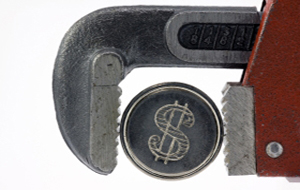

The Canada Revenue Agency (CRA) says the $10,000 TFSA contribution limit is effective immediately, but there’s some concern a new government could make the extra contribution room disappear.
Liberal leader Justin Trudeau says that if he’s elected this fall, he would lower the TFSA contribution limit back to $5,500. He says the increased limit disproportionately benefits wealthy families. Analyses from the Parliamentary Budget Office, the Broadbent Institute and other think tanks have also indicated that high-income older households benefit most.
But tell clients not to worry about repaying part of their $10,000 TFSA contributions, say industry experts.
Read: How the TFSA limit increase changes the savings landscape
It’s unlikely that Trudeau would make the reversal retroactive, says Chris Ambridge, president and CIO of Provisus Wealth Management.
“They’re not going to penalize Canadians because of the impact of political change in this country,” he says.
Doug Carroll, vice-president of tax and estate planning at Invesco, says were the Liberals to impose the change retroactively, the backlash from Canadians wouldn’t be politically palatable.
For the same reason, he says the Liberals would likely allow people to carry forward up to $10,000 of unused contribution room from this year. That way, those people who could contribute $10,000 to this year wouldn’t have an advantage over those who couldn’t contribute right away.
Read: Changes to TFSAs, RRIFs coming
Anything can happen in an election and its aftermath, so senior financial planning consultant Nicholas Miazek at Scotia McLeod says to use the new TFSA room now.
“If Trudeau makes changes, he is going to have to give people time and a mechanism with which to remove that excess money from the TFSA, or make any changes not grandfathered to 2015,” he says.
Imposing taxes on the gains made on contributions beyond $5,500 would also be impractical, says Carroll.
“How do you target the particular holdings and say, ‘It was the income off this GIC, or that mutual fund, or that stock or bond, that’s associated with that $4,500’?” says Carroll. “It’s almost impossible to do that, so I don’t think there can be any tax imposition.”
CRA would not comment on how repealing the TFSA increase would affect taxpayers or tax rates.
Read: Plans to increase TFSA limit come under fire
The way the government has treated overcontributions from earlier in 2015 indicates how they might proceed should the contribution limit be lowered again, says Ambridge.
“Anybody who had overcontributed earlier this year, [the government] said that they would not be subject to penalties,” he explains. “I would assume that the same thing [would] hold through should the Liberals come to power.”
The Liberal Party is expected to announce parts of its own economic platform in the next few weeks, including repealing the increase and using the resulting tax revenues to fund other tax breaks that would benefit low- and middle-class Canadians. The government estimates the $10,000 limit will reduce tax revenues by $1.1 billion between 2015 and 2020.
Trudeau would also nix income-splitting, and return Old Age Security eligibility to 65 years old, from 67.
Liberal PM Jean Chrétien’s government initially proposed a tax-free savings account in 2003. Prime Minister Stephen Harper implemented it in the 2008 budget, with a contribution limit of $5,000 that was tied to inflation (now, the limit is no longer tied to inflation). The Conservatives promised to double TFSA contribution room in the 2011 budget.
Looking for related stories? Read more of our coverage of the 2015 federal budget.
This post originally appeared on our sister site, Advisor.ca.
